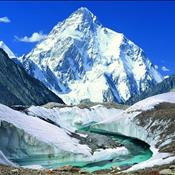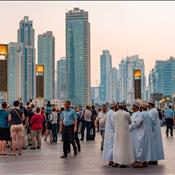
Pakistan is still not very popular for tourists, and the country is frequently portrayed in the media as a war-torn wasteland. Only a small number of extremely backpackers who are dedicated climbers wish to visit Pakistan yearly.
Pakistani travel is a genuinely unique experience that can be encouraging but illuminating, beneficial, and, most of the time, unexpected. It's time for you to visit Pakistan if you love genuine adventure because it's the best place to go backpacking now.
Pakistan has significantly changed its visa policies to attract foreign investment and tourists by fully waiving the visa fee for nationals of up to 126 different nations. The decision was made at the federal cabinet meeting last Wednesday, and Prime Minister Shahbaz Sharif dubbed it a "quantum jump" to draw in investors, business people, tourists, and other travelers as well as to make business easier for the country.
This action is a component of the government's attempts to encourage foreign investment, commercial activity, and tourism in Pakistan, along with the introduction of the new e-visa system. Travelers will benefit from a simplified application process with just 30 questions under the new policy.
.png)
Here is the list of the countries that can enter visa-free to Pakistan. The 126 countries and territories are eligible for free Pakistan visas, which can be obtained within 24 hours by applying online via the official portal. Visitors from these nations can apply for a 90-day visa within 24 hours, according to the Pakistan Tourism Development Corporation (PTDC), a government agency that promotes and develops tourism in Pakistan.
List of 126 CountriesBenefited by Pakistan’s New Visa Policy
|
|
Specific Plans for the Gulf Countries
Citizens of the Gulf Cooperation Council (GCC) nations that are Saudi Arabia, Bahrain, the United Arab Emirates, Kuwait, Oman, and Qatar will also benefit from the free E Visa for 126 countries, as well as the opportunity to acquire a visa upon arrival in Pakistan by just using their passport. This special arrangement is even more evidence of Pakistan's dedication to promoting travel and deepening relations with its neighbors.
Impact on Tourism and the Economy of Pakistan with this Act
Pakistan made an intelligent choice to increase foreign investment and tourism by implementing this free visa policy. The nation hopes to draw more foreign visitors by reducing financial and administrative barriers, which should result in an important rise in income for the retail, hospitality, and service industries. Additionally, the increase in business travelers may result in a rise in foreign direct investment (FDI), which would promote economic expansion and the creation of jobs in a country.
;More Travel News
-
 25-Jul-2024Presidency for Religious Affairs Unveils Ambitious Plan for 2024 Umrah Season
25-Jul-2024Presidency for Religious Affairs Unveils Ambitious Plan for 2024 Umrah Season -
 25-Sep-2024Iran has Resumed Traveling to Saudi Arabia for the Umrah Pilgrims
25-Sep-2024Iran has Resumed Traveling to Saudi Arabia for the Umrah Pilgrims -
 13-Mar-2023Riyadh Air going to be the new Saudi flag carrier airline. Tells Muhammad bin Salman
13-Mar-2023Riyadh Air going to be the new Saudi flag carrier airline. Tells Muhammad bin Salman -
 13-Aug-2021Taking a Northern Areas Tour Here is your quick guide for a smooth trip
13-Aug-2021Taking a Northern Areas Tour Here is your quick guide for a smooth trip -
 21-Mar-2022No PCR Test and Rise in demand for Umrah
21-Mar-2022No PCR Test and Rise in demand for Umrah -
 19-Jul-2022Umrah Registration Guidelines and Policy 2022 for Umrah Pilgrims
19-Jul-2022Umrah Registration Guidelines and Policy 2022 for Umrah Pilgrims -
 10-Jan-2023Thailand Government Announces New International Passenger Rules Concerning 2023
10-Jan-2023Thailand Government Announces New International Passenger Rules Concerning 2023 -
 12-Apr-2023Turkey Visa for UAE Residents
12-Apr-2023Turkey Visa for UAE Residents
